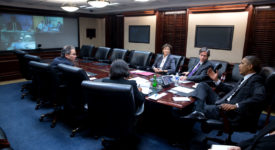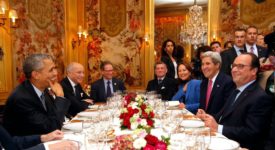„Google’s ‘experiment’ hiding Australian news just shows its inordinate power“, writes Belinda Barnet, a media and communications expert at Swinburne University of Technology in Melbourne, warning that „by just tinkering with that power, by conducting little ‘experiments’, [Google] can make or break news businesses.“ Barnet refers specifically to the debate between Australian media and “Big Tech” that has fired up over the proposed news media bargaining code, which would require Google to negotiate a fair price for news content with eligible Australian outlets. The company has been arguing that news content is just not worth it if it has to negotiate payment for it in this way and these “tests” will probably be used in aid of that argument. As the search firm has proven in Spain, where it shut down Google news altogether in response to similar legislation in 2014, it is willing to remove timely and accurate content from search results in order to avoid paying for news content on anyone’s terms except its own.
Also Germany is modernising its competition law to stand up to digital giants to ‚check‘ their market power. The dominant market position of a few „Big Tech“ companies, such as Facebook and Amazon, has long been a thorn in the side of European competition watchdogs. While they discuss EU-wide regulation in Brussels, Germany is moving ahead. Last week (14 January), the Bundestag, the German federal parliament, passed an amendment to the “Act against Restraints of Competition,” or “GWB” for short. The core objective of the reform is to make competition in the digital space fairer. As a result, in the future, the country‘s Cartel Office will be able to act faster and tougher when it has determined that a digital company is of “overriding importance across markets.” Criteria for this include access to competitively relevant data, vertical integration on several markets or its financial strength.
It is ‘no longer acceptable’ for social media giants to take key decisions on content removals online, following the high profile withdrawal of President Trump’s accounts on Facebook and Twitter, the European Commission has said. Also MEPs have a renewed duty to address the thorny issue of regulating social media content, in the wake of last week’s Capitol Hill riots, according to the chair of the Parliament’s Internal Market Committee. Green MEP Anna Cavazzini said the world’s ‘eyes have been opened’ to the challenge of dealing with online disinformation and the spread of hate speech in online social media. “There’s always a fine line between stamping out harmful content and blocking legitimate statements that come from politicians,” Cavazzini noted. In the particular and unprecedented case of banning US president’s user accounts, “Twitter and Facebook have only adopted such a rigorous approach since it became clear that Trump would no longer be America’s president,” Cavazzini stressed, adding that “these are questions that we will now have to address as part of our talks on the Digital Services Act in the Internal Market Committee.”
Article Tags:
Amazon · Anna Cavazzini · Australia · Belinda Barnet · Capitol Hill · Donald Trump · Facebook · Google · Melbourne · Swinburne UniversityArticle Categories:
ECONOMY & TRADE






